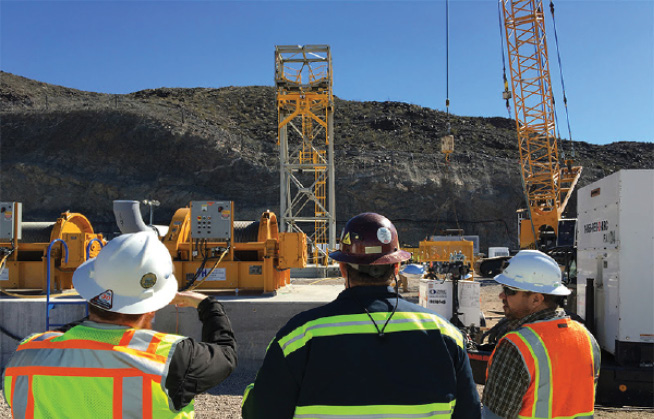During Infrastructure Week, Tsurumi Pump Regional Sales Manager Derek Jackson talked about the pump qualities contractors should pay the most attention to for infrastructure work.

What role do pumps play in infrastructure projects?
Pumps play an essential two-part role in infrastructure. First, in the process of creating infrastructure, they keep construction sites dry. Second, once work is complete, they’re often in place to support operations. Dewatering is an indispensable part of many infrastructure projects even before they begin. For example, when building a bridge, even the early stages of developing the foundations and access ramps will require builders to deal with groundwater. They then need to be prepared to handle rainwater and other surface water during the project. Or if you consider tunnels and other excavation pits, it’s crucial to keep water out of ongoing construction. Pumps might be used to provide water for jetting and sluicing in these applications. In terms of operations, once a structure is complete, pumps will often be used for moving wastewater and stormwater and keeping surfaces dry. At any time, water can become a serious issue if not dealt with effectively.
What design features are most beneficial to project engineers and contractors?
Contractors prefer using pumps that are durable and robust. A dependable design is key. Electric submersible pumps offer several advantages over engine pumps, such as easy operation and low maintenance. Pumps typically encounter tough conditions at job sites and if they cannot sustain the day-to-day demands, they can bring an entire project to a halt. Pumps should be mobile to provide flexibility on the job site because getting water out of the hole or surface will take priority during a construction schedule. For infrastructure projects, pumps should also be designed to handle slurries and abrasive particles. Having a pump made of wear-resistant materials with dry run capabilities and a wide operating area is ideal for a project’s success. Often contractors can face financial penalties if projects go beyond the expected completion date, so it’s crucial to have the most dependable equipment at hand.
What are some of the advantages of using electric pumps in construction work?
Electric pumps are quieter than engine-driven pumps and do not have issues with refueling and potential fuel spills. In addition, engine pumps require an oil change every 200 hours of operation, unlike submersible electric pumps. Plus, there are no emissions. If electricity is available, the cost to run an electric pump is lower than a diesel-driven alternative. An electric unit will work continuously without failure when plugged into a stable power supply. In addition, electric power is cheaper than fuel, and maintenance costs are lower.
Tsurumi Pump, www.tsurumiamerica.com
